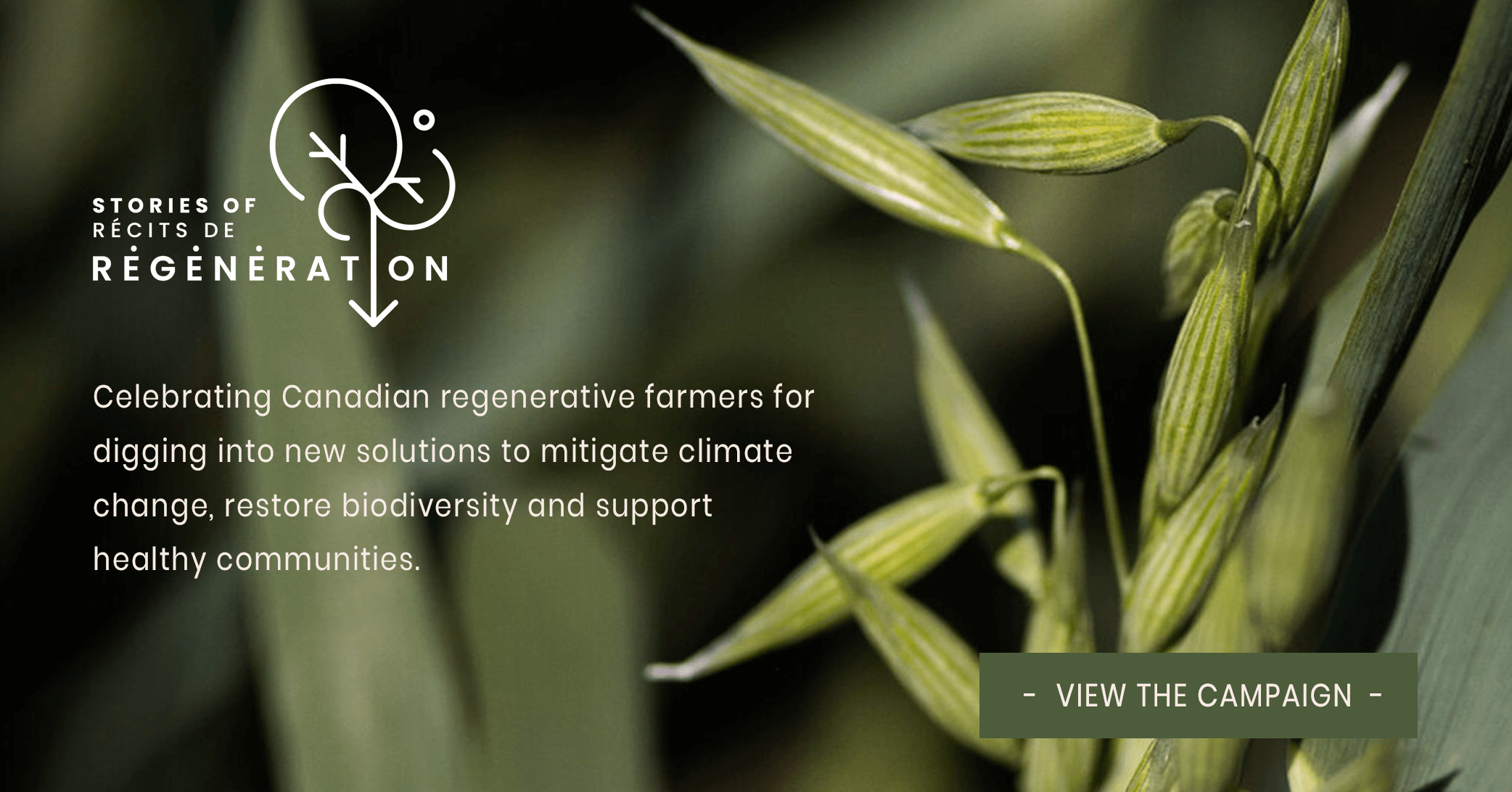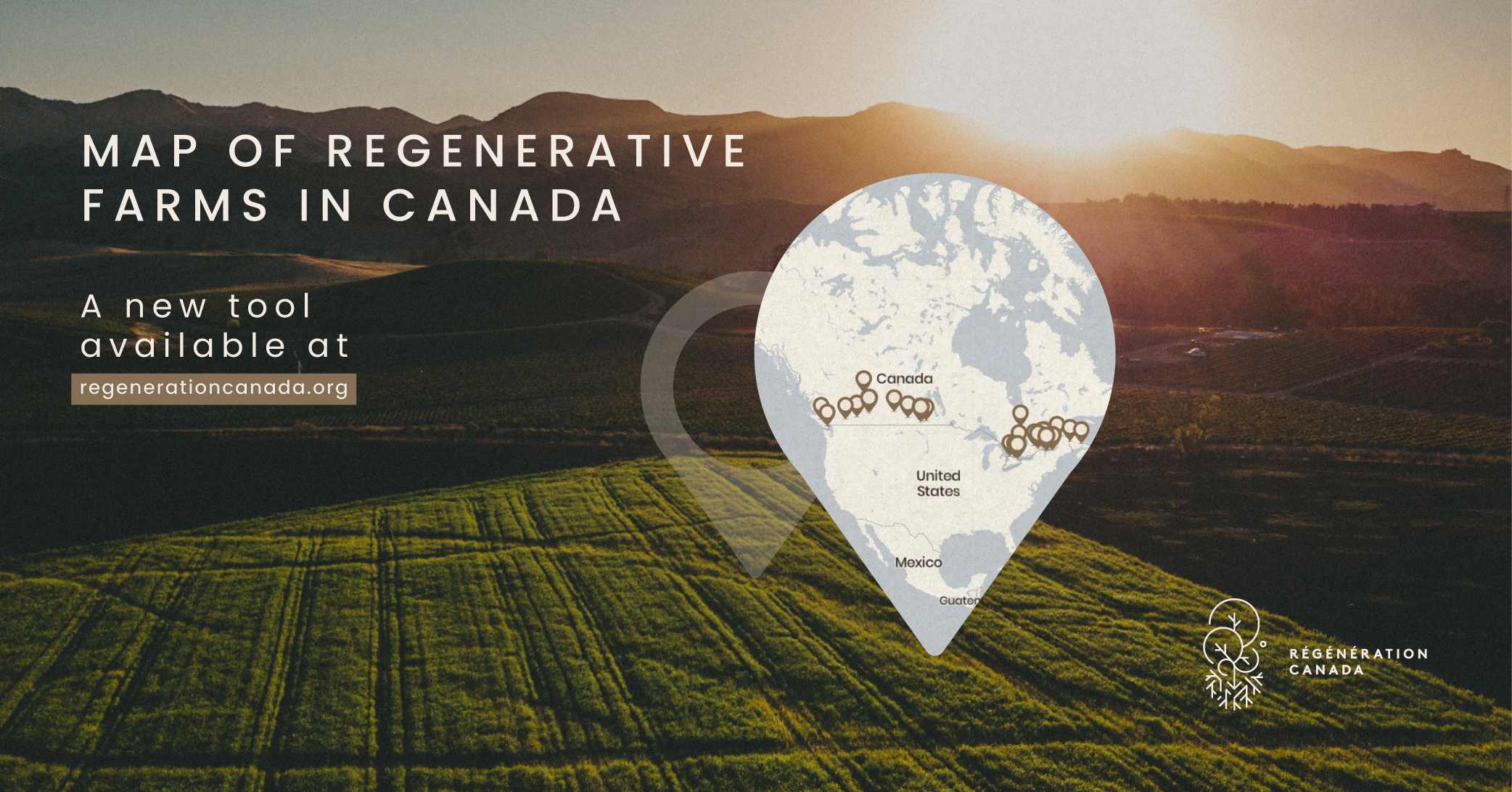Over the last several decades, the focus on the nutrient density of foods has been replaced by the pursuit of higher yields and maximized production systems, leading to poorly managed soils and chronic illnesses associated with sub-optimal nutrition. However, it is vital to understand that natural ecosystems are complex and dynamic and that nothing thrives in isolation.
In this webinar, we explored how regenerative food production is healthier for the soil, people and the planet. We heard from cattle rancher Craig Cameron of Peony Farms near Lacombe, Alberta, about how his daughter’s health challenges encouraged him to reevaluate his farming practices and focus on producing the highest quality beef possible–an objective that he regularly monitors through five testing methods.
Author Dr. Fred Provenza, professor emeritus of Behavioral Ecology, shared his knowledge about the intuitive wisdom of animals regarding nutritional choices and how humans could rethink the future of food. Shawna Lyons from the Bionutrient Institute dived into the science behind the nutrient testing of foods and her own experiences in food production. The conversation was facilitated by Angel Beyde of the EFAO. Watch the recording below.
About the farmer:
Craig Cameron has a background in environmental science and chemistry, and along with his father-in-law, Peter DenOudsten, he co-manages the cattle operation at Peony Farms in Lacombe, AB, where they produce high-quality Piedmontese breeding stock and forage finished Piedmontese beef.
After going on a journey to find the best food to support his daughter’s health challenges, Craig, along with his wife Miriam and the rest of the Peony Farms team, began transitioning to Regenerative agriculture and producing food as medicine. Their entire production process is designed to produce food products that are nutrient-dense and support their customers’ pursuit of optimal health.
– Discover Peony Farms –
About the speakers:
Fred Provenza grew up in Salida, Colorado, working on a ranch while attending school in Wildlife Biology at Colorado State University. He obtained graduate degrees and worked at Utah State University for 35 years. He is now a professor emeritus of Behavioral Ecology at the Department of Wildland Resources at Utah State University, where part of his work culminated in a program called BEHAVE, which was active from 2000-2010. BEHAVE was an international network of scientists, ranchers, farmers, and land managers committed to integrating behavioural principles with local knowledge to enhance environmental, economic, and cultural values of rural and urban communities.
Fred is the author of three books, including Nourishment: What Animals Can Teach Us About Rediscovering Our Nutritional Wisdom; Foraging Behavior: Managing to Survive in a World of Change; and The Art & Science of Shepherding: Tapping the Wisdom of French Herders (co-author with Michel Meuret). Fred has also published over 300 research papers in a wide variety of scientific journals, and has been an invited speaker at over 600 conferences.
The many awards he received for research, teaching, and mentoring reflect the creativity that flowed from warm professional and personal relationships with over 75 graduate students, post-doctoral students, visiting scientists, and colleagues during the past 45 years.
Shawna Lyons has been growing food on a variety of levels for the past 20+ years, with the scale of her operations ranging from a 40-acre homestead in VT to a 10-acre diversified farm in CO, to a 75+ variety suburban garden. But Shawna’s goal has remained the same: to provide the highest quality and variety of food for her family and community.
Aside from being a dedicated producer, Shawna holds a degree in Soil and Crop Science and Organic Agriculture, and, in her quest to measure and quantify nutritional quality in food, she met Dan Kittredge and found the Bionutrient Food Association (BFA). She has been involved with the BFA at varying levels for the past decade or so. Currently, she is the Partnerships and Community Coordinator for the BFA/Bionutrient Institute.
Shawna believes that emphasizing quality as nutritional content, rather than quantity, is the future of a sustainable food system. Certification systems focus on limiting or requiring certain management practices rather than allowing and encouraging freedom and creativity in pursuit of high-quality, bionutrient-dense products.
About the moderator:
Angel Beyde’s love for the natural world and growing food is equalled only by her joy in feeding people and community-building. Over the past two decades, Angel’s work has spanned the for-profit and non-profit sectors in education, urban agriculture, regenerative landscaping, social enterprise and mental health.
As a Director at Ecological Farmers Association of Ontario, Angel’s work focuses on building strategic partnerships and supporting organizational governance and transformation through an anti-oppression and equity lens. This includes founding and leading the Land Access Coalition as well as the EFAO Farmers Network for Black, Indigenous and People of colour, which has over 150 members.
Through Angel’s work as Peace Garden Consulting, she offers organizations support in strategic visioning & planning, leadership coaching and team-building, as well as board and stakeholder training in equity, diversity and belonging. Angel has had the honour to consult with dozens of farming and environmental organizations across the country and has served in an advisory capacity for Farmers for Climate Solutions, Fair Finance Fund, Regeneration Canada, Project Swallowtail, Toronto Metropolitan University, Pollinator Partnership and Canadian Agricultural Human Resources Council, among others.
Angel is the grateful steward of a small farm in Eastern Ontario, in Crawford purchase territory.
About the campaign:
This webinar is the fifth in a 6-part webinar series, and is part of our Stories of Regeneration campaign. The campaign aims to enhance public awareness around regenerative agriculture practices and how farmers contribute to combating climate change and food systems issues.
The webinar series will run from November 2023 – March 2024. All sessions are free to attend live, and free to watch later. We encourage you to register for as many sessions as you’d like!
Keep an eye out for our podcasts, short films, and blog posts that will be released throughout the coming months too.





